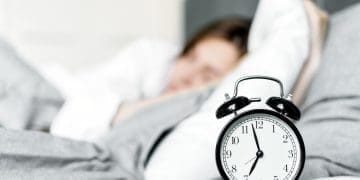The BBC made a bit of an own goal with its fact-checking service on Wednesday 10 October. Because when it attempted to ‘reality check’ Jeremy Corbyn’s use of figures, it actually used outdated figures itself. Altogether now: ‘aww!’
PMQs: May on the ropes
The Labour leader put it to Theresa May that:
today is World Mental Health Day. And today, there are 5,000 fewer mental health nurses than there were in 2010. The Prime Minister said last week that ‘austerity is over’. When will austerity be over for the mental health services?
A squirming May spluttered:
Now, he raises the issue of mental health. And I’m pleased he’s raised the issue of mental health. Because this is a government that is actually ensuring that mental health is given the attention that it needs. It is… it is… it is.. this government that has ensured that there will be parity of esteem for mental health and physical health in the National Health Service. And it is this government that is putting record levels of funding into mental health.
How many more times May could say the word “health” is unclear. But Corbyn claimed it was Labour which forced the Tories into giving parity of esteem to mental and physical health. The Canary fact check shows it was actually a crossbench peer, Lord Patel, who first introduced this, although Patel did work for the Labour Party.
Enter the BBC
But BBC “Reality Check” (don’t laugh) decided to look at Corbyn’s 5,000 nurses claim. It tweeted:
Jeremy Corbyn claims "there are 5,000 fewer mental health nurses then there were in 2010." Official figures reveal 4,821 fewer mental health nurses between Jan 2010 and April 2018 https://t.co/E6MBp6anyx #PMQs
— BBC Reality Check (@BBCRealityCheck) October 10, 2018
But the eagle eyes of Evolve Politics were on hand to give the BBC a ‘reality check’ of its own:
BBC "Reality Check" just used old statistics to falsely accuse Jeremy Corbyn of lying at #PMQs.
As of June 2018, there were 5,045 fewer mental health nurses – as Corbyn stated. Yet the BBC chose to use April's figures instead. https://t.co/ZtIyXghMzp https://t.co/PXL4u5hlLT
— Evolve Politics (@evolvepolitics) October 10, 2018
Indeed, NHS figures do show that in January 2010 there were 40,719 nurses in mental health. This fell to 35,674 by June 2018 – a drop of 5,045 nurses.
The BBC‘s fact check didn’t impress social media users. One spotted the Beeb’s mistake:
Why use old figures when June 18 figures are available? The decline since April has continued and for the record is now 5,045 fewer.
Jan 10 40,719 mental health nurses
Apr 18 35,898
May 18 35,690
Jun 18 35,674Reality check very disappointing!
— Christopher Anton (@GBRChris_A) October 10, 2018
Some threw some sarcasm into the mix:
I am pleased to see you agree (accounting for a little rounding up) with Mr Corbyn assertion. Er, you are agreeing, aren't you?
— daisy cat (@cat_daisy) October 10, 2018
As did Dylan:
He's 179 mental health nurses out.
I'm voting Tory.
Thank you BBC for exposing this scandal.— Dylan Strain ????️ (@DylanStrain) October 10, 2018
But Rabble Cat made the best point:
At least he wasnt out by 29,308 pic.twitter.com/e3ykxqv8nB
— Rabble Cat (@TheGraveside) October 10, 2018
But hey – at least the BBC is trying. It’s just a shame that it takes indy media and Twitter users to prove how crap at fact checking it really is.
Get Involved!
– Join The Canary so we can keep holding the powerful to account.
Featured image via BBC iPlayer – screengrabs and BBC News – Wikimedia









